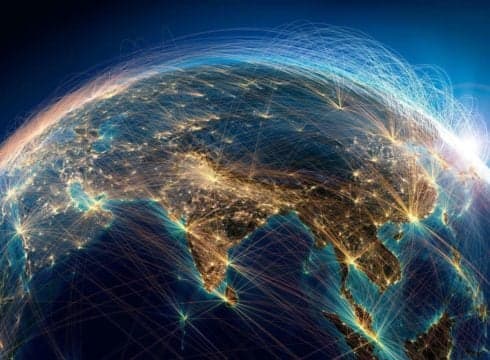India ranked 68th, as against 58th last year
Singapore replaced the US as the world’s most competitive economy
India ranked high in terms of macroeconomic stability and market size
Inc42 Daily Brief
Stay Ahead With Daily News & Analysis on India’s Tech & Startup Economy
With the Indian government still decoding the economic slowdown, here comes another dampener from the Geneva-based World Economic Forum (WEF). According to the annual Global Competitiveness Index compiled by WEF, India has slipped 10 spots to rank 68 while many other economies in the world went up the ladder.
The WEF report said that India was among the worst-performing BRICS nations along with Brazil, which has ranked 71 this time. Last year India was ranked 58th in the annual index. The reasons cited for the slip are improvements in economic and business activities in several countries.
Another important development highlighted by the index is Singapore replacing the US as the world’s most competitive economy. Now in its 40th year, the Global Competitiveness Report, said the US was losing ground in measures such as “healthy life expectancy” and preparedness for the future skills needed in the 21st century.
The US, however, still took the title of “an innovation powerhouse” and the world’s most competitive large economy. Hong Kong, the Netherlands and Switzerland have secured the top five places in the rankings.
A look at the position of India’s neighbours in the index shows that India is followed by Sri Lanka at 84th place, Bangladesh at 105th, Nepal at 108th and Pakistan at 110th place. The presence of many competitive countries in Asia-Pacific makes this region the most competitive in the world, said the authors. China ranked the highest among the BRICS at 28th, Vietnam, the most improved country in the region this year, at 67th, Hong Kong at 3rd and Taiwan at the 12th spot.
The index analyses the landscape of 141 economies based on over 100 indicators in a dozen categories, including headings like health, financial system, market size, business dynamism and capacity to innovate. “The index is a compass for thriving in the new economy where innovation becomes the key factor of competitiveness,” said WEF founder Klaus Schwab.
India Ranked Three In Terms Of Market Size
On the brighter side, the WEF shared that India ranked high in terms of macroeconomic stability and market size, while its financial sector was relatively deep and stable despite the high delinquency rate, which contributes to weakening the soundness of its banking system. According to the study, India was at 15th place in terms of corporate governance and ranked second globally for shareholder governance. In terms of the market size and renewable energy regulation, India is ranked third.
It was too early to assess the impact of some of the operative factors in the world economy over the last year, said the authors of the report. They found signs that the trade tiff has led some economies to benefit as businesses look for alternatives to China. “For example, Vietnam used to be at 77 last year. This year, it’s at 67. “That 10-rank increase is in part because the economy has been able to use the current situation in terms of the trade war to attract some of the investments to be able to become a little bit more of a regional trading hub,” said head of the WEF’s Center for the new economy and society Saadia Zahidi.
We Need More Than Corporate Tax Cut: India Inc At WEF Meet
Meanwhile, the recent World Economic Forum’s annual India Economic Summit in Delhi saw many corporate leaders expressing their views on how corporate cut alone would not be enough to revive the economy. The speculations came after Indian government announced a corporate tax cut to 22% from 30% in September 2019.
“Reduction in corporate tax rate would be good but personal tax rate should also be cut down as the slowdown in demand is now clearly visible. Government should provide more stimulus even if it means increasing the fiscal deficit,” said the chairman of Godrej Group, Adi Godrej, according to a media report.
The event jointly organised by WEF and Confederation of Indian Industry saw many industry experts saying that more reforms and incentives were required for the country to emerge from the shadow of a slowing economy. Some also felt that the government needs to put in place a mechanism to help startups access capital. “Becoming a $5 Tn economy would not be possible without innovation,” said founder of early-stage venture capital Kalaari Capital, Vani Kola.
{{#name}}{{name}}{{/name}}{{^name}}-{{/name}}
{{#description}}{{description}}...{{/description}}{{^description}}-{{/description}}
Note: We at Inc42 take our ethics very seriously. More information about it can be found here.


